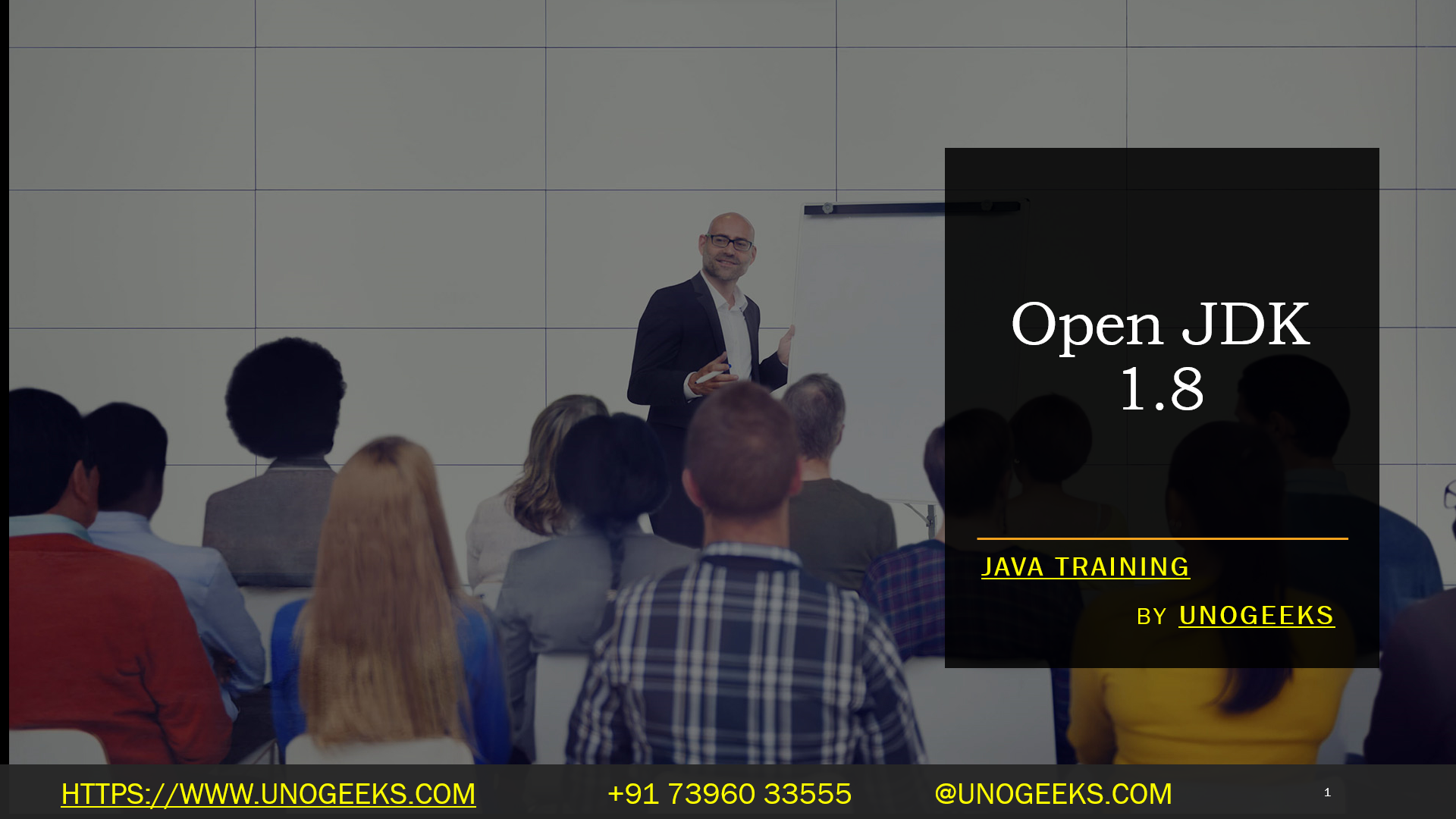Open JDK 1.8
OpenJDK 8, also known as Java SE 8, is an open-source implementation of the Java Platform, Standard Edition (Java SE) specification. It is widely used and was a significant release of the Java programming language with several new features and enhancements. Here’s some information about OpenJDK 8:
Features of Java 8: OpenJDK 8 introduced several important features and improvements to the Java language and platform, including:
- Lambda expressions: A powerful way to express instances of single-method interfaces (functional interfaces) using a concise syntax.
- Stream API: A new abstraction that allows for functional-style operations on sequences of elements, such as filtering, mapping, and reducing.
- Default methods: The ability to add new methods to interfaces without breaking existing implementations.
- The java.time package: A modern date and time API for improved date and time handling.
- Nashorn JavaScript Engine: A lightweight, high-performance JavaScript runtime for Java applications.
- Other improvements and enhancements to the language, libraries, and JVM.
Open-Source Implementation: OpenJDK is an open-source project sponsored by Oracle that provides an open and collaborative environment for the development of the Java platform. OpenJDK 8 is part of this effort and is available under open-source licenses.
Long-Term Support (LTS): OpenJDK 8 is considered an LTS release, which means it receives extended support and updates for an extended period. This is important for organizations that require a stable and well-supported Java version.
Download OpenJDK 8: You can download OpenJDK 8 from various sources, including the official OpenJDK website (https://openjdk.java.net/). Alternatively, you can use package managers like apt-get (on Debian-based systems) or brew (on macOS) to install OpenJDK 8.
Migration to Later Versions: While OpenJDK 8 is still in use in many applications, it’s important to note that it’s not the latest Java version available. If you’re starting a new project or considering an upgrade, you might want to consider using a more recent version of Java, such as OpenJDK 11 (another LTS release) or a newer version that suits your needs.
Community Support: OpenJDK 8 has a strong community of users and contributors who provide support, bug fixes, and updates. You can find support through online forums, mailing lists, and community-driven resources.
Demo Day 1 Video:
Conclusion:
Unogeeks is the No.1 Training Institute for Java Training. Anyone Disagree? Please drop in a comment
You can check out our other latest blogs on Java Training here – Java Blogs
You can check out our Best in Class Java Training details here – Java Training

———————————-
For Training inquiries:
Call/Whatsapp: +91 73960 33555
Mail us at: info@unogeeks.com
Our Website ➜ https://unogeeks.com
Follow us:
Instagram: https://www.instagram.com/unogeeks
Facebook: https://www.facebook.com/UnogeeksSoftwareTrainingInstitute
Twitter: https://twitter.com/unogeeks
